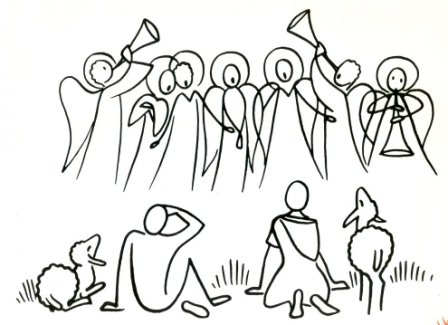8:40 AM My reading this morning was in what is probably my favorite letter in the New Testament. Perhaps no human being is less into writings that are too wordy, but the author of Hebrews doesn’t waste a single syllable. His point in the final chapters of his message (a letter, true, but more of a transcript of a sermon spoken to a group of Christians audibly) is that the way we love each other, serve each other, and live our lives with each other really matters. It’s a big deal to Jesus. One little snippet jumped out at me:
Don’t forget to do good and to share what you have with those in need, for such sacrifices are very pleasing to him (TLB).
This reminds me very much of Rom. 12:13 (which, by the way, is my life verse):
When God’s children are in need, you be the one to help them out (TLB).
Generosity ranks terribly high on Jesus’ list of required attributes for His followers. Back to Hebrews for a moment:
Stay away from the love of money; be satisfied with what you have. For God has said, “I will never, never fail you nor forsake you” (TLB).
The Greek here seems to be even stronger: “I will never, ever leave you, nor will I ever, ever forsake you” (5 negatives). But the promise is tied to the command: Be satisfied with what you have. Once again, I can’t help but think about Paul: “Godliness with contentment is great gain” (1 Tim. 6:6).
You know, friends, a person may have an abundance of things without an abundance of life. We can be poor in the midst of plenty. Has there ever been a generation who surrounded themselves with more things to make their lives enjoyable only to be the most bored and unhappy generation of all time? I remember watching the kids of rural Ethiopia playing with their toys. No, these gadgets didn’t come from Wal-Mart. The kids would find scraps of discarded plastic or metal and fashion toys for themselves. These kids had practically nothing yet were the happiest kids I think I’ve ever seen.
Here’s what I’m learning. Dave, life does not consist in the presence or absence of things. You are rich and have an abundance beyond the fluctuations of the stock market. “We have nothing and yet possess everything” wrote Paul (2 Cor. 6:10). I am both a pauper and a plutocrat! I have nothing because it all belongs to God and I am only its steward. I have everything because I am a joint-heir with Christ. I have all the advantages and none of the disadvantages of being both poor and rich.
Believe me, I’m still working on this generosity thingy. I am hardly immune to the feverish selfishness of this age. Yet the earliest Christians “had everything in common” and “gave to anyone as they had a need” (Acts 2:44-25). I’ve been reading a book by an author whose church gives more than half of its income to the needy. “We won’t spend more on ourselves than on our poor neighbor” were the author’s words. Think about that while looking at your church’s budget! Bottom line: Generosity has always been a characteristic of the society of Jesus. That’s because God is a generous God. And His Holy Spirit gives His people a tender conscience for the needy.
This is the kind of kingdom man I want to be and the kind of kingdom students I want to raise up. The extent of our generosity is but a whisper of our devotion to God.



